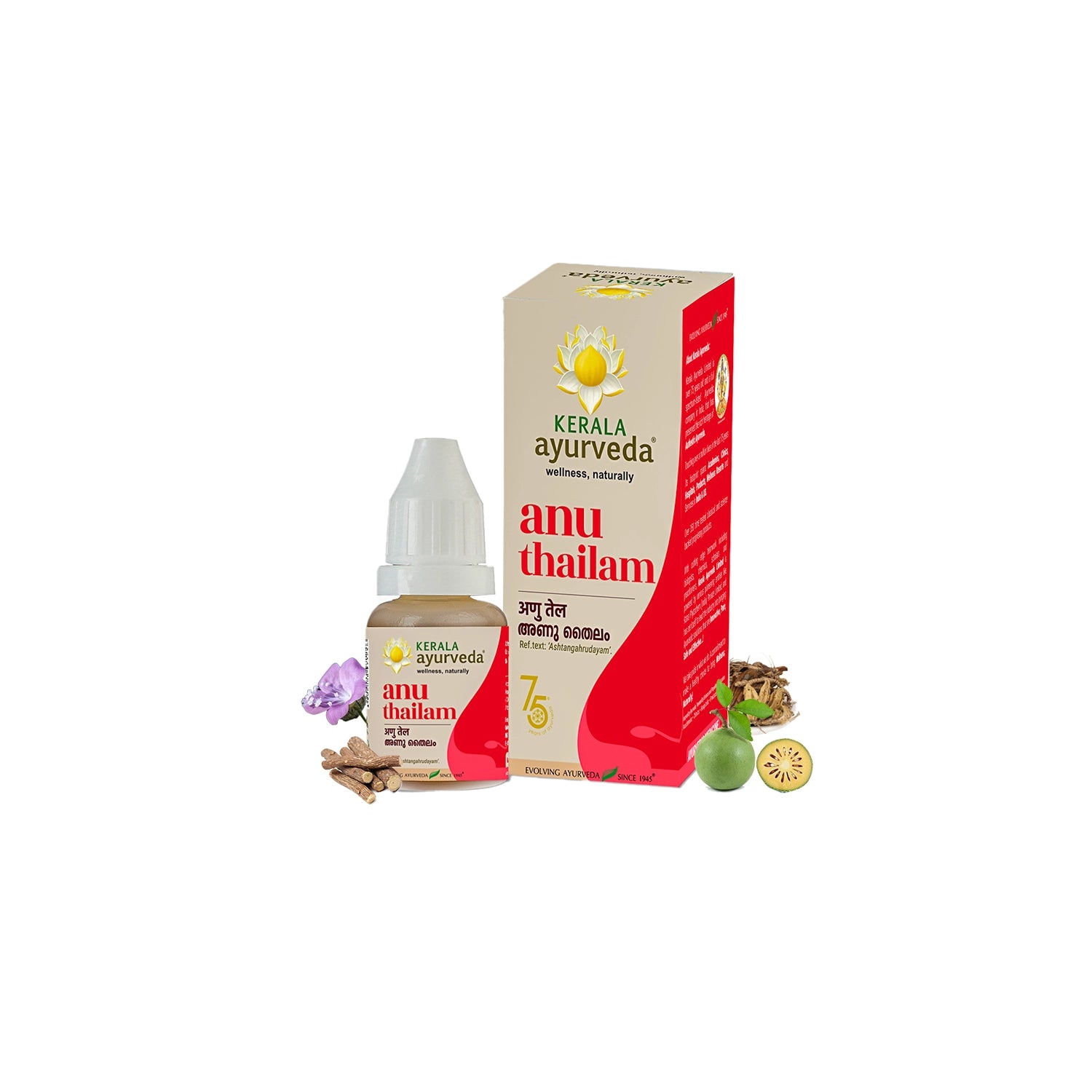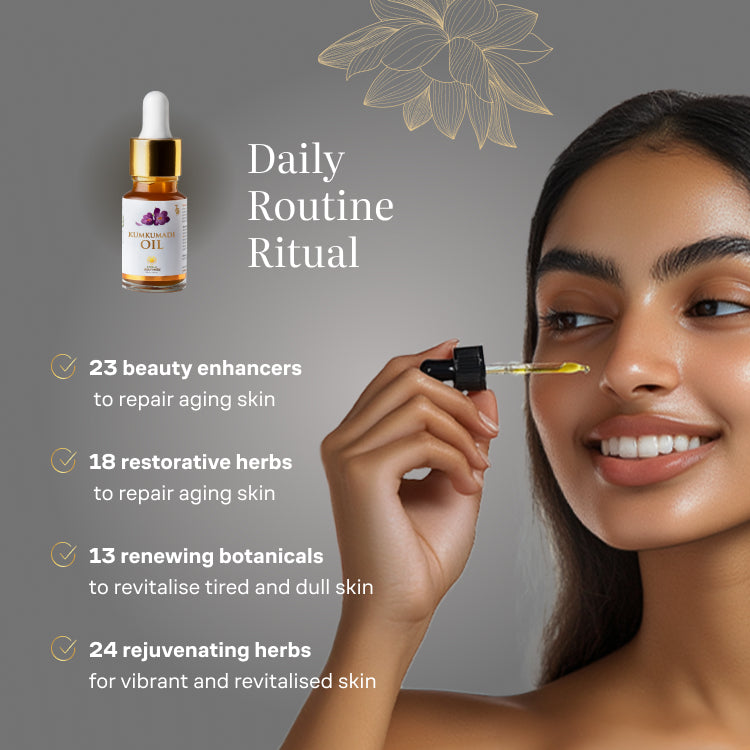Highlights
Sometimes life pulls you in multiple directions at once, isn’t it?
Stressful work life, irregular sleep, and scattered habits slowly impact your energy, focus, and mood. Over time, this imbalance starts to show, physically and mentally. But the fix isn’t always difficult. Sometimes, it’s about building that rhythm in your life.
This rhythm is called Dinacharya (daily routine) in Ayurveda. These aren’t rigid rules, but mindful practices that bring stability to the modern chaos that you face. From rising with the sun to nourishing the body and calming the mind, each step creates a foundation for lasting wellness.
What is Dinacharya?
Dinacharya is the Ayurvedic concept of following a daily routine that aligns your lifestyle with the natural cycles of the day.
According to Ayurveda, morning, afternoon, and evening each have distinct energies that influence your body and mind. You can optimize digestion, improve energy levels, and maintain overall well-being by following a structured routine.
This practice isn’t just about habits, it’s a preventive approach to long-term health concerns. A well-planned Dinacharya helps detoxify the body, enhance immunity, and bring stability to the mind.
Why is Dinacharya Important for You in Daily Life?
Dinacharya aligns your body with nature’s cycles to support overall health. This practice eliminates toxins, prevents disease, and balances the three doshas, Vata (responsible for movement and circulation), Pitta (governs digestion and metabolism), and Kapha (provides structure and stability). Following a consistent routine enhances your overall digestion, mental clarity, and emotional stability.
8 Essential Dinacharya Practices for Health and Wellness
Studies suggest that aligning daily habits with nature’s cycles can improve your circadian rhythm and prevent lifestyle disorders. Here are the eight DIY Ayurvedic rituals that can be easily integrated into your routine for long-term health benefits.
1 Wake Up Before Sunrise
Waking up before sunrise isn’t just an old saying. It’s a deeply rooted Ayurvedic practice. Ayurveda says that the period 90 minutes before sunrise is known as Brahma Muhurta, a time when the mind is naturally calm, and the environment is pure.
Benefits:
- Supports mental clarity and emotional balance.
- Enhances willpower, creativity, and focus.
- It helps regulate the body’s natural rhythms.
How to Practice:
- Eat your dinner two hours before bed.
- Aim to sleep by 10 PM and wake up before sunrise.
- Avoid checking your phone immediately. Start your day with a few moments of stillness.
2. Practice Oil Pulling
Oil pulling (Gandusha) is a simple yet powerful way to eliminate toxins, improve oral health, and support digestion. Swishing herbal oil in your mouth pulls out bacteria and freshens your breath. No harsh mouthwash is required.
Benefits:
- Removes toxins and supports gum health.
- Helps manage bad breath and plaque buildup.
- Strengthens teeth and oral hygiene.
How to Practice:
- Use Arimedadi Thailam, a traditional Ayurvedic oil, for best results.
- Swish 1 tablespoon of oil in your mouth for 5-20 minutes, then spit it out.
- Do this before brushing your teeth every morning.
3 Brushing and Tongue Scraping
Oral hygiene is more than just brushing. It’s about removing toxins that accumulate overnight. Ayurveda recommends using herbal tooth powders and a copper tongue scraper to maintain overall health.
Benefits:
- Removes bacteria and prevents toxin buildup.
- Supports digestive health (a coated tongue is often a sign of digestive issues).
- Enhances fresh breath and oral cleanliness.
How to Practice:
- Brush using a herbal toothpaste or powder.
- Use a copper tongue scraper to gently clean your tongue before eating or drinking.
4 Apply Nasya Oil for Clear Breathing
Nasya, an Ayurvedic nasal therapy, helps clear sinus congestion, prevent allergies, and support cognitive function by lubricating nasal passages with herbal oils.
Benefits:
- Supports respiratory health and sinus relief.
- Helps with allergies, headaches, and nasal dryness.
- Promotes mental clarity and focus.
How to Practice:
- Use Anu Thailam, a classic Ayurvedic oil for Nasya.
- Lie down, tilt your head back, and place 1-2 drops in each nostril.
- Take a deep inhale and spit it out when the oil reaches your throat.
5 Massage Your Scalp
A gentle head massage with herbal oil can nourish the scalp, promote hair growth, and calm the mind, all in just a few minutes.
Benefits:
- Strengthens hair follicles and reduces dryness.
- Delay the early onset of male pattern baldness and grey hair.
- Promotes deep relaxation and better sleep.
How to Practice:
- Massage your scalp with Neelibhringadi Thailam, a traditional hair oil.
- Do this at least three times a week before taking a bath.
6. Practice Yoga for Energy and Balance
Yoga and Ayurveda go hand in hand. In fact, for thousands of years, Yoga has been an integral part of the Ayurvedic lifestyle. Plus, it’s a physical exercise known to help manage emotions and maintain good health throughout the year.
Benefits:
- Enhances blood circulation and flexibility.
- Improves digestion and respiratory function.
- Supports mental calmness and energy levels.
- Promotes a healthy metabolism.
How to Practice:
- Begin with simple Surya Namaskar (Sun Salutations).
- Follow guided sessions on reliable Yoga platforms or join a local class.
7. Eat a Balanced Diet
A clean, wholesome diet plays a key role in preventing imbalances and boosting energy levels. Ayurveda emphasizes eating according to your body type (Vata, Pitta, or Kapha) and maintaining a nutrient-rich, balanced diet to support optimal health.
How to Build an Ayurvedic Diet:
- Include fresh, seasonal foods in your meals.
- Avoid cold, processed, and fried foods.
- Consider Ayurvedic supplements like Chyawanprash, Ashwagandha Sparkles, and Brahmi pearls for immunity and vitality. Consult an Ayurvedic doctor for a personalized diet plan.
6. Replace Synthetic Creams with Ayurvedic Oils
Ayurveda recommends using herbal face oils instead of synthetic creams for radiant, healthy skin. Oils like Kumkumadi Thailam are known for their anti-aging and skin-brightening properties with Saffron, Lotus, Jasmine, etc.
Benefits:
- Free from harsh chemicals.
- Supports natural glow and even skin tone.
- Removes blemishes and helps clear acne and pimples.
How to Use:
- Apply 2-3 drops of Kumkumadi Thailam to your face and neck before bed.
- Wash it off in the morning for a natural, healthy glow.
Final Thoughts
A balanced daily routine is essential for sustaining long-term health and harmony between the body and mind. These simple Ayurvedic practices help align your body with nature’s rhythms, supporting digestion, immunity, mental clarity, and emotional well-being.
You don’t need to change everything at once. Start with one or two habits, like waking up early or oil pulling, and gradually build a routine that fits your lifestyle. Consistency is key, and even small adjustments can create lasting benefits.
When you follow Dinacharya consistently, you create a natural balance between your body, mind, and environment, supporting long-term health.
For high-quality Ayurvedic oils, supplements, and wellness products, explore Kerala Ayurveda’s range and take the first step toward holistic well-being.
FAQs
1. Does Dinacharya help prevent lifestyle diseases?
Yes, following Dinacharya helps prevent lifestyle-induced diseases and promotes health by aligning daily habits with natural rhythms.
2. What are the benefits of practicing yoga in the morning?
Incorporating yoga into your morning routine can enhance flexibility, improve digestion, and promote mental calmness. Regular practice supports overall physical and mental well-being, aligning with Ayurvedic principles of maintaining balance.
3. How does the practice of Abhyanga (oil massage) influence circadian rhythms and overall health?
Abhyanga, or daily oil massage, is said to normalize circadian rhythms by influencing neurotransmitters like tryptophan and serotonin. This practice promotes relaxation, improves sleep quality, and balances the body's internal clock, thereby supporting overall health and well-being.
4. Why does Ayurveda emphasize modifying diet and lifestyle with seasonal changes, and how do these changes vary by region?
Ayurveda focuses on the importance of 'Ritucharya,' or seasonal regimens, to harmonize the body's energies with environmental shifts. For instance, in Northern India, where winters are prolonged and rains arrive later, dietary and lifestyle adjustments differ from those in Southern India, where rains come earlier. These modifications help maintain doshic balance and overall well-being throughout the year.













